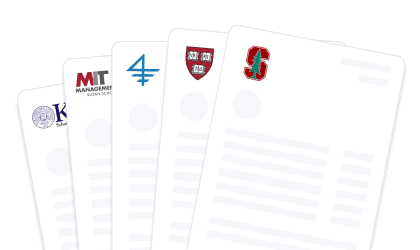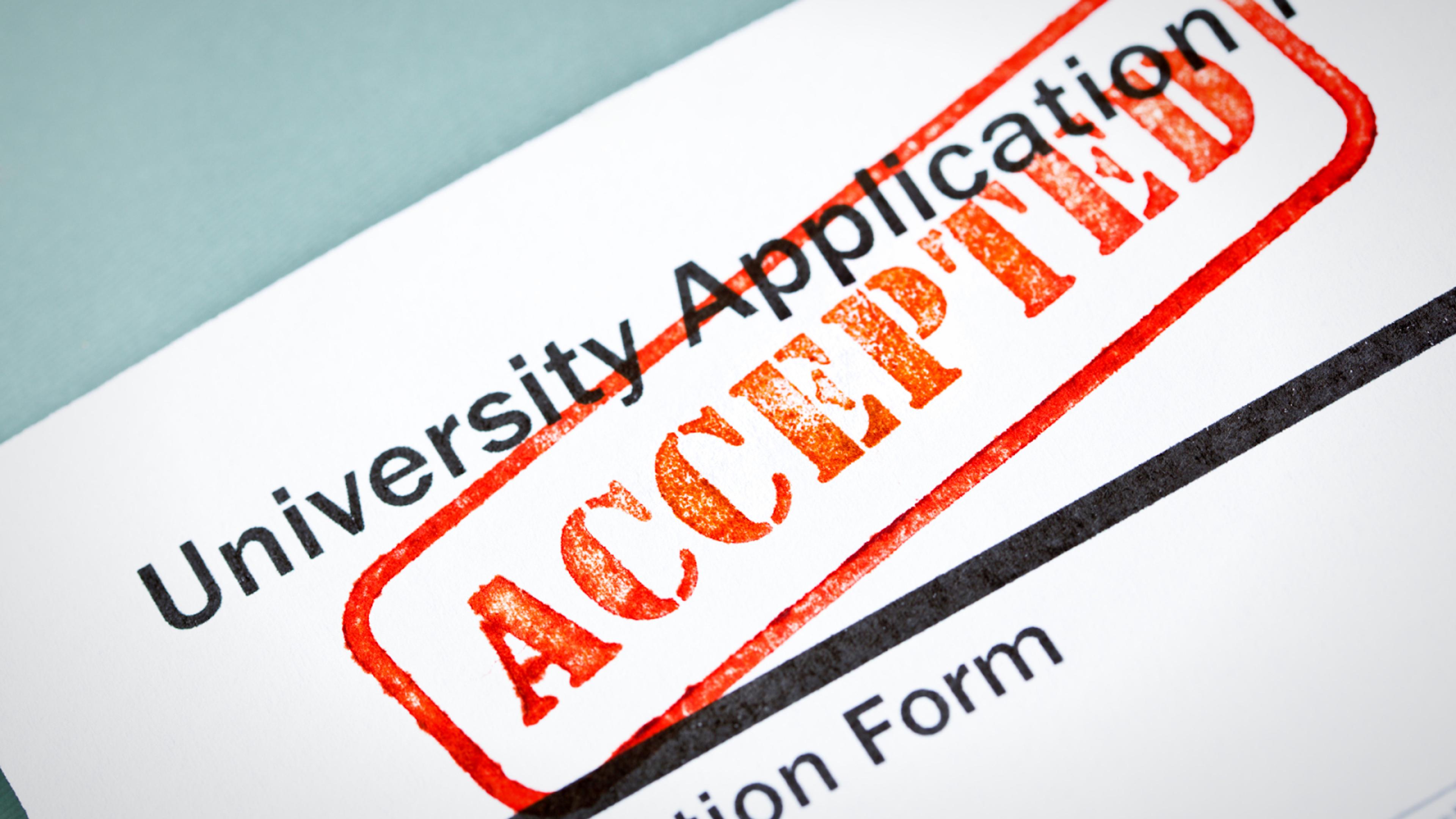
Join a free event
Learn from top coaches and industry experts in live, interactive sessions you can join for free.
Table of Contents
Marketing is a vital function in any business, encompassing everything from brand strategy to consumer market analytics. It plays a key role in driving growth, enhancing customer engagement, and maintaining competitive advantage in today’s fast-paced market.
For individuals aspiring to excel in marketing, earning a Master of Business Administration (MBA) or a marketing degree can provide the expertise, resources, and connections needed to thrive in this dynamic marketing field. An MBA in marketing offers not only essential coursework but also hands-on experiences to build practical skills and secure career opportunities.
How to Choose a Business School for Marketing MBA
Reputation and Rankings
The reputation and ranking of a business school are important considerations when choosing an MBA program, especially for those pursuing a marketing MBA. Many business schools, including top-tier business schools, are known for attracting leading companies and hiring experienced faculty, such as seasoned marketing managers or renowned marketing professors. While rankings should not be the sole deciding factor, they provide a general indication of the program’s strength in delivering quality business education and producing successful alumni.
Expert Tip: If your goal is to secure a role in a global firm or a top leadership position, prioritize top business schools with strong brand recognition and international networks. For those seeking opportunities in regional markets, consider schools with strong local networks that cater to local companies and regional industries.
Ready to take the next step? Explore your options and start building the career of your dreams in marketing! Browse top marketing coaches here.
Recruiting and Career Services
Programs with robust career services and dedicated support for marketing management careers often result in better job placement rates and stronger outcomes for students. These services may include specialized marketing career fairs, access to alumni connections, and courses like marketing electives designed to prepare students for industry challenges. Schools with strong ties to major companies provide students with opportunities to intern, network, and secure post-graduate positions in leading organizations.
Example: The Kellogg School of Management at Northwestern University has a well-established Marketing Club that organizes events and networking opportunities. Kellogg consistently places a significant portion of its MBA graduates in leadership roles at globally renowned companies like Procter & Gamble, Amazon, and Unilever.
Location
The geographic location of a business school can play a critical role in shaping your MBA experience. Schools situated in major business hubs offer unparalleled access to marketing internships, industry events, and networking opportunities. Locations like New York City, Chicago, and Los Angeles connect students directly with local companies and major companies, offering an advantage in career placements.
Example: Columbia Business School, located in New York City, benefits from its proximity to global marketing hubs. Students frequently interact with firms specializing in digital marketing, market research, and branding through internships, company visits, and networking events.
Faculty Expertise
The expertise of the faculty is a significant factor in determining the quality of a marketing MBA program. Schools with professors who specialize in areas such as business analytics, consumer needs, behavior, and business development can provide students with valuable industry insights and mentorship. Faculty actively involved in consulting, research, or industry projects often incorporate real-world examples into their teaching, enhancing the learning experience.
Alumni Network and Class Size
A strong alumni network can be an invaluable resource for mentorship, job referrals, and career guidance. Alumni who have established themselves as leaders in marketing management can provide insights into navigating career challenges and identifying opportunities. Smaller class sizes may foster closer faculty-student interaction and personalized attention, while larger class sizes often offer a broader network of peers and alumni.
Example: The Wharton School is known for its extensive alumni network, with graduates occupying key positions in multinational firms. Wharton’s alumni actively mentor students and help them successfully complete leadership projects and career transitions.
Core and Elective Courses
The curriculum of a marketing MBA program is central to its effectiveness. Strong programs provide a balance of foundational business courses and specialized electives. Courses like "Consumer Behavior," "Marketing Strategy," and "Market Research" build a solid theoretical framework, while practical, hands-on learning opportunities such as case studies, simulations, and consulting projects ensure students are prepared for real-world challenges.
Example: Kellogg’s curriculum includes cutting-edge courses like "Customer Analytics" and "Retail Analytics," which emphasize practical learning through conducting research and simulations. These courses prepare students to analyze data effectively and develop actionable marketing strategies.
The Top 5 MBA Programs for Marketing Management
While many academic programs offer strong marketing curricula, the following five stand out for their comprehensive offerings, experiential opportunities, and career placement success.
1. Kellogg School of Management at Northwestern University
- Percentage of Graduates in Marketing Roles: 30%
- Median Marketing Salary: $135,000
Kellogg is renowned for its focus on marketing and consistently ranks among the top MBA marketing programs. Its Marketing Club and experiential learning opportunities, such as the Global Lab course, equip students with real-world experience.
Kellogg Example Marketing Courses:
- Marketing Strategy
- Customer Analytics
- Retail and Luxury Marketing
2. The Wharton School – University of Pennsylvania
- Percentage of Graduates in Marketing Roles: 15%
- Median Marketing Salary: $130,000
Wharton’s Marketing major emphasizes both analytical and creative approaches, offering courses like "Brand Equity" and "Pricing Strategies." Graduates often secure leadership roles in consumer goods, tech, and media industries.
Wharton Example Marketing Courses:
- Digital Marketing
- Consumer Insights
- Strategic Brand Management
3. Stanford Graduate School of Business
- Percentage of Graduates in Marketing Roles: 10%
- Median Marketing Salary: $140,000
Stanford’s MBA program integrates innovation and entrepreneurship into its marketing curriculum, making it ideal for those aiming to excel in dynamic industries. Proximity to Silicon Valley also gives MBA students access to tech giants like Google and Apple.
Stanford Example Marketing Courses:
- Design Thinking
- Strategic Marketing in the Digital Era
4. Columbia Business School
- Percentage of Graduates in Marketing Roles: 12%
- Median Marketing Salary: $125,000
Columbia leverages its location in New York City to connect MBA students with leading firms in digital marketing and branding. Marketing MBA electives focus on market research and consumer behavior, with strong ties to firms like L'Oréal and NBCUniversal.
Columbia Example Marketing Courses:
- Consumer Behavior
- Social Media and Mobile Marketing
5. Haas School of Business at UC Berkeley
- Percentage of Graduates in Marketing Roles: 18%
- Median Marketing Salary: $120,000
Haas’s marketing program emphasizes sustainability and innovation, with courses tailored to the tech and startup ecosystem. MBA students benefit from the school’s proximity to Silicon Valley and its connections with emerging brands.
Haas Example Marketing Courses:
- Marketing for Social Impact
- Product Innovation
5 Expert Tips for Choosing the Right Marketing MBA
1. Look beyond rankings, focus on outcomes.
Top rankings are helpful, but they don’t tell the whole story. Choose a school with strong job placement rates in marketing, excellent faculty, and proven alumni success in your desired industry.
2. Target programs with deep company connections.
Business schools like Kellogg and Columbia stand out because they’re plugged into major firms like Amazon, L'Oréal, and P&G. These connections lead to internships, networking events, and job offers after graduation.
3. Prioritize location if you want access to major firms.
Studying in a city like New York or San Francisco gives you easy access to global brands, marketing agencies, and tech startups—great for building your network and résumé.
4. Choose schools with strong marketing electives.
Look for MBA programs that offer specialized courses like Digital Marketing, Customer Analytics, or Strategic Branding. These build practical skills that employers want today.
5. Don’t underestimate the power of alumni.
A supportive alumni network can open doors. Programs like Wharton and Stanford are known for alumni who mentor, refer, and recruit fellow graduates into high-paying marketing roles.
Key Takeaways:
- Pursuing a marketing MBA enhances expertise in marketing strategy, consumer behavior, and digital marketing, while also developing broader business acumen.
- Top business schools provide experiential learning opportunities, robust networking prospects, and high placement rates in prestigious marketing roles.
- The best marketing MBA programs offer tailored courses, including marketing management, market research, and strategic branding, equipping graduates for leadership positions in the marketing industry.
Where Can I Start?
If you’re interested in pursuing a marketing MBA to advance your career or transition into marketing, here are some resources to help you get started:
- The Top 25 MBA Programs—and How to Get In
- How to Get Into the Marketing Scene: Insider Tips and Tricks for Success
- The Different Types of MBA Programs—and Which One is Right for You
- Top 10 Marketing Coaches & Mentors
Get Into a Top MBA Program With Expert Help
If you’re looking for personalized support during the MBA application process or while navigating your marketing career path, browse our expert coaches. They have extensive experience with top business schools and successful careers in marketing, offering guidance tailored to your goals. Whether you need help with crafting a compelling personal statement, choosing the right MBA program.
FAQs
Which MBA is best for marketing?
- Top schools for marketing include Kellogg (Northwestern), Wharton (UPenn), and Columbia Business School. These programs offer strong marketing courses, hands-on projects, and access to major companies.
Is getting an MBA worth it for marketing?
- Yes. An MBA in marketing can boost your career by opening doors to leadership roles, increasing your salary potential, and building a strong professional network.
What are the top 10 MBA programs?
- While rankings vary, schools consistently in the top 10 include: Stanford Graduate School of Business, Harvard Business School, Wharton School (UPenn), MIT Sloan, Kellogg (Northwestern), Columbia Business School, Booth (University of Chicago), UC Berkeley Haas, Yale SOM, and NYU Stern.
Is MBA in marketing in demand?
- Absolutely. Companies across industries are hiring MBAs for roles in brand management, digital marketing, and product strategy, especially those with data skills and strategic thinking.
Browse hundreds of expert coaches
Leland coaches have helped thousands of people achieve their goals. A dedicated mentor can make all the difference.

























